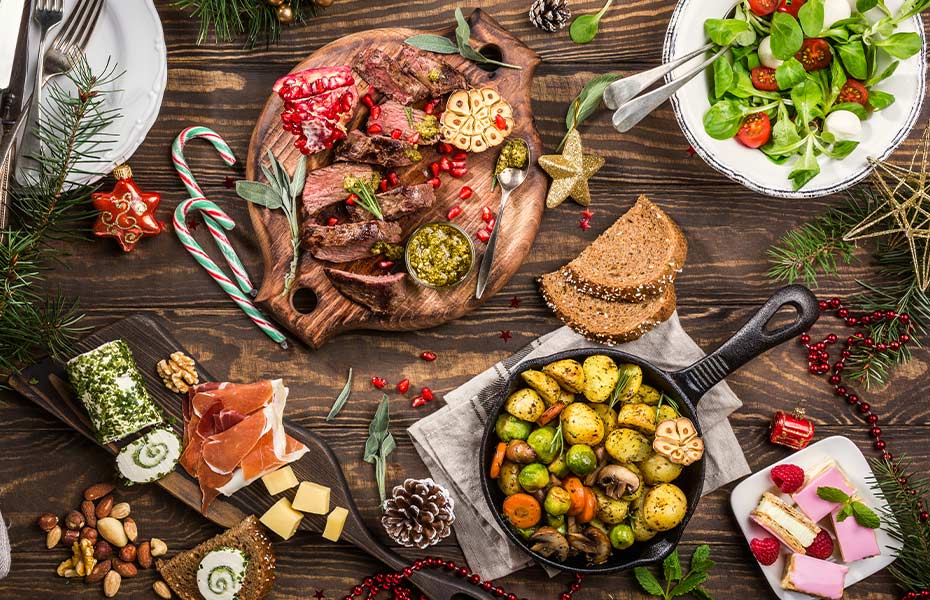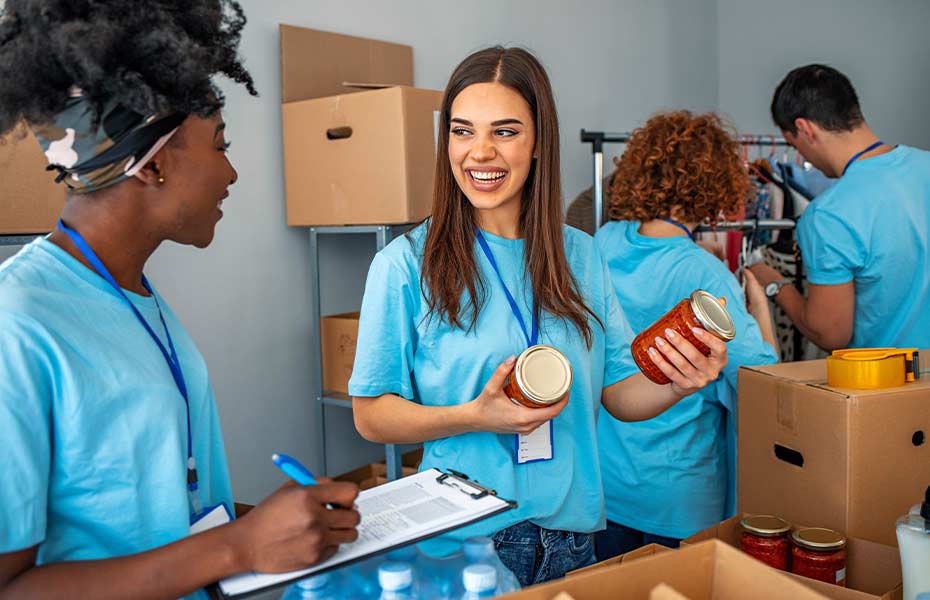Sober Christmas
Celebrating a Sober Christmas: Tips for Maintaining Your Recovery During the Holidays
With its festive spirit and joyous gatherings, the holiday season can be a challenging time for individuals in early recovery. Celebrating Christmas sober might seem daunting, but it’s entirely possible and can be incredibly rewarding.
This article provides practical tips and strategies to help you navigate the holiday season while maintaining your sobriety.
The Challenges of the Holiday Season for Individuals in Recovery
The holiday season often brings with it a host of social gatherings, family functions, and parties where alcohol is present. This can pose significant stress and temptation for those in recovery. Understanding these challenges is the first step in preparing to face them.
Strategies for Staying Sober During Holiday Gatherings and Parties
There are various ways you can protect your sobriety during the holidays. We aim to cover the best tips from our experts at the Massachusetts Center for Addiction.
Bringing Your Own Non-Alcoholic Drinks
Bringing your own non-alcoholic drinks to holiday gatherings is a practical and empowering strategy for maintaining sobriety. It ensures you have a safe drink option, which can be comforting in environments where alcohol is prevalent. This approach also helps avoid drawing attention to your sobriety, as others may not notice your beverage is non-alcoholic.
This strategy also helps you maintain control over your environment, reducing the temptation to indulge in alcoholic drinks. It’s a proactive decision in favor of your sobriety and a subtle reminder of your commitment to your recovery journey.

Focusing on the Food
At holiday events, shift your attention to the array of delicious food available. Savoring the culinary delights can be an effective distraction from drinking. Engaging your senses in tasting different dishes not only keeps you occupied but also enhances your overall experience of the celebration.
Having Support Nearby
Whenever possible, bring along a sober friend or family member to gatherings. Their presence and understanding of your journey can offer significant support and comfort.
Recognizing Triggers and Setting Limits
Understand what situations, conversations, or environments might provoke the urge to drink and plan how to handle them. This could involve setting a time limit for your stay or having a response ready for offers of alcoholic drinks.
If you find yourself in a situation that feels too overwhelming or challenging, give yourself permission to leave early. Prioritizing your comfort and safety is key, and sometimes the best decision is to remove yourself from a potentially triggering environment.
Remember, safeguarding your recovery is your top priority, and setting these boundaries is a proactive step in doing so.
Going Back to Basics
Remember the basic principles of your recovery program. Stick to what works, including attending meetings or therapy sessions.
These practices are your anchors in recovery, providing structure and support. They remind you of the skills and strategies you’ve learned to maintain sobriety.
Staying connected with your recovery community or support group during this time can also offer additional strength and encouragement.

Staying Busy and Giving Back
Engaging in volunteer work, such as helping at a local shelter or community center, is a meaningful way to stay occupied during the holidays. This act of giving back keeps you busy and offers a deep sense of purpose and fulfillment.
It’s a positive and productive way to channel your energy, often providing a perspective that can overshadow the temporary allure of substance use. Helping others can reinforce your own journey in sobriety, reminding you of the value and impact of your choices.
Practicing Self-Care
Self-care isn’t just about physical health; it’s also about nurturing your mental and emotional well-being.
Regular exercise, for instance, can be a great stress reliever and mood booster. Meditation or mindfulness practices can help center your thoughts and keep you grounded, providing a sense of calm amidst the holiday chaos.
Remember, self-care is not selfish. It’s a necessary practice that keeps you at your best, enabling you to fully enjoy the holiday season while staying true to your recovery journey.
Creating Alcohol and Substance-Free Traditions
Establishing new traditions not centered around alcohol or substances can be a refreshing and enjoyable way to celebrate the holidays. These new customs can redefine what the holiday season means to you and your loved ones, focusing on connection, joy, and celebration in healthier ways.
Consider organizing a family game night where everyone can engage in friendly competition and laughter. This creates a fun atmosphere, strengthens bonds, and creates lasting memories. Movie marathons with a selection of favorite films or new releases can be another great way to spend time together, offering relaxation and entertainment without the need for alcohol.
Depending on the weather, outdoor activities can also be a fantastic way to start new traditions. A winter hike, a trip to a local ice-skating rink, or even building a snowman can be delightful ways to enjoy the season’s beauty and get some fresh air.
These new traditions serve as a reminder that joy and celebration can exist wholly and vibrantly without the presence of alcohol or substances. They can also be a way to introduce family and friends to different forms of celebration that support your sobriety, creating a more inclusive and understanding environment for everyone involved.

Seeking and Utilizing Support Systems During the Holidays
The holiday season can be a time of heightened emotions and stress, making it all the more important to actively seek and utilize your support systems.
Whether it’s a recovery group, a trusted friend, or a family member, having a network of support can be a cornerstone in maintaining your sobriety during this period.
Engaging with your recovery group or attending meetings can provide an invaluable sense of community and understanding. These groups offer a safe space to share your feelings and challenges, and to receive encouragement and advice from those who have faced similar situations.
Coping with Family Gatherings and Potential Triggers
Family gatherings during the holidays can be stressful and may trigger cravings. To handle these situations, plan ahead. Consider rehearsing responses to offers of alcohol and have an exit strategy in case the environment becomes overwhelming.
Bringing a sober buddy for support can also be beneficial. Setting boundaries and prioritizing your recovery is important, even if it means stepping away from a gathering. Remember, your well-being should always come first.
Self-Care Routines and Practices for Maintaining Emotional Well-Being
Activities like yoga can enhance both physical and mental health, offering relaxation and mindfulness. Journaling is a great way to process emotions and gain insights into your mental state, helping manage stress.
Spending time in nature, whether through walks or simply enjoying a peaceful outdoor setting, can also have a calming effect. These practices support your recovery and overall emotional health during the holiday season.
Celebrating the Holidays with a Gratitude Mindset
Emphasizing the joys of the holiday season beyond alcohol can be transformative. Adopting a gratitude mindset, such as creating a gratitude list, helps focus on the positives in your life. Reflect on what you’re thankful for, like family, health, and milestones in your recovery.
This practice shifts your attention to the meaningful aspects of the holidays, like connecting with loved ones and enjoying traditions, reducing the focus on alcohol. Embracing gratitude supports your sobriety and enriches your holiday experience with genuine joy and appreciation.
Embracing the Joy of a Sober Holiday Season
Celebrating a sober Christmas is not only possible but can be deeply fulfilling. By preparing strategies, leaning on support systems, and focusing on self-care, you can navigate the holiday season while maintaining your recovery. Remember, each day sober is a gift to yourself and your loved ones.

Contact Us

Address
Quincy, MA 02169
Start your recovery with
Massachusetts Center for Addiction
Our team is available 24 hours a day, 7 days a week to answer any questions you may have. Give us a call today and begin your journey toward long-term recovery.






